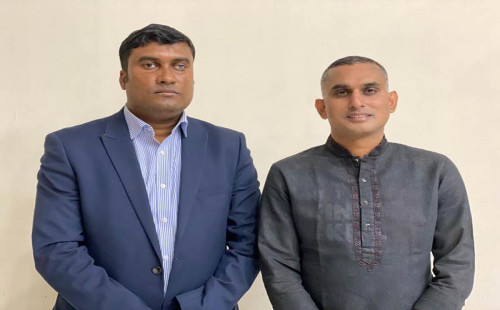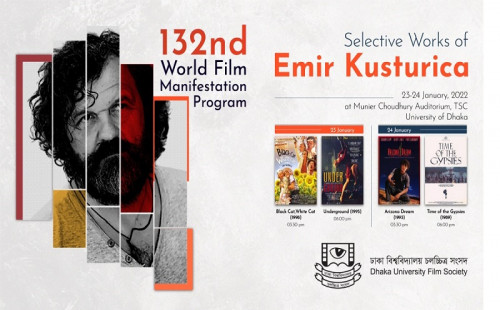Breast cancer screening project cost increasing by 4 times

The period and expense of
a project aimed at launching cervical and breast cancer screening services in
all the upazilas of Bangladesh are constantly increasing.
The Executive Committee
of the National Economic Council (ECNEC) approved the project ‘Electronic Data
Tracking with Population-based Cervical and Breast Cancer Screening Programme
(EPCBCSP)’ with an estimated cost of Tk 49.5 crore, aimed to be implemented between
July 2018 and June 2021.
Later, the period of the
project was extended by one year and its expense was re-fixed at Tk 56.78 crore
through its first revision. At present, a proposal to extend the periphery and
activities of the project has been sent to the planning commission for its
second revision. The proposal included a request to extend the duration of the
project for another two years and allocate its expense at Tk 198.95 crore which
is almost four times more than its initial expense.
According to the sources
of the planning commission, the government has undertaken the project in order
to launch cervical and breast cancer screening services in all the upazilas of
the country. The aim of the project is to minimize the rate of maternal
mortality due to cancer and cancer-related complications, by establishing an
effective referral system for cervical and breast cancer screening, and its
management and follow-up in the country.
Besides, a proposal was
sent to the planning commission with an aim to increase the expense and
duration of the project which is to be implemented by Bangabandhu Sheikh Mujib
Medical University (BSMMU). Now, BSMMU wishes to implement the project in each
upazila of the country although 200 upazilas were under the project at initial
stage.
According to BSMMU, the
rate of maternal mortality would be minimized by establishing an effective
referral system for cervical and breast cancer screening, and its management
and follow-up in the country
In this regard, the
infrastructure of the electronic data tracking with population-based cervical
and breast cancer screening will be developed in government health institutions
including institutes, medical college hospitals, district-level hospitals,
maternal and child welfare centres, upazila health complexes, and selected
community clinics. Especially, treatment facilities regarding the cervical and
breast cancer will be increased in the government medical college hospitals.
Side by side, an
infrastructure consisting of 33 thousand 512 square feet area will be
constructed through upward extension at the Oncology Building (Block-F) of
BSMMU to ensure the advanced treatment to cervical and breast cancer patients.
“About 90 beds will be
added and infrastructural development will be ensured for cervical and breast
cancer patients at BSMMU through this project. In the revised proposal,
cervical and breast cancer screening services have been added in 64 districts
and 492 upazilas of the country. Furthermore, 9,166 service providers including
officers, doctors, nurses, midwives, and FWVs working in 600 government health
institutions will be imparted training to enhance their skills,” said the project
director Dr Ashrafunnesa.
Regarding the project,
Senior Assistant Chief of the Planning Commission Saini Aziz told, “The
duration of the project has been increased as per the decision made during the
meeting of the steering committee. Initially, it was supposed to work for the
200 upazilas through this project. But now, the project will be introduced in
all the upazilas of the country as per the decision of the steering committee.
Following the decision,
the Ministry of Health has sent a proposal to revise the project. A PEC meeting
will be held on January 27 on the project. The project has been introduced for
the cervical and breast cancer screening. The project will be helpful for
women. The project work is being done well. 55-56 percent of the project work
has been done so far. People will be benefited, if the project is implemented
on time.”
On the other hand, Dr.
Md. Habibullah Takukder Ruksin, associate professor and head of Cancer
Epidemiology at National Institute of Cancer Research and Hospital told, “Only
10 percent of the objectives of the project was accomplished through this program
in the last 15 years. BSMMU did not consider the theoretical aspect of cancer
screening in the program. The entire program is facility-based. People will
come to the hospital, give their samples for test and leave. But the fact that
people need to be made to understand their issues and come back to the hospital
is not happening. In fact, we have covered about 7-8 percent through this
program.”
“In order to increase the
coverage, first of all we need to come out of the hospital-based system and go
to the community-based program. The program needs to be initiated from the
union level with the same efforts made while administering Covid-19
(coronavirus) vaccines. The number of cancer patients at villages, unions,
upazilas and districts cannot be determined from Dhaka. The tracking system
will solely help to get an approximate number of probable cases, but not to
diagnose the diseases. Actually, the theoretical and practical aspects are
required to be considered in order to figure out the cancer incidents. But fact
is that these are not being taken into consideration in the program,” he added.
Meanwhile, the issues to
be discussed at the PEC meeting of the Ministry of Planning are:
1. The progress report of
the above-mentioned project till December 2021 needs to be informed at the PEC
meeting.
2. 45 new people were
proposed to be appointed for the outsourcing sector under the project but there
was no recommendation from the finance division for 37 people. In the proposal,
8 in place of 37 people can be appointed. Apart from that, the reason needs to
be known for appointing four drivers in the outsourcing sector while the
proposal requested three vehicles only. Besides, the projected proposal
addressed the maintenance cost of four vehicles in place of three proposed in
RDPP.
3. The secretary’s
certificate regarding the certitude of funding for the project and information
associated with MTBF were not attached to the RDPP.
4. There has been no
agreement till now regarding the purchase of equipment, books and periodicals,
and internet/fax/telex under the project. In this respect, Open Tendering
Method (OTM) is required instead of the Request for Quotation Method (RFQM) and
Direct Procurement Method (DPM) to purchase the aforementioned materials.
Similarly, only the purchase of services can be done using the consultancy
method while any one of the methods of procurement mentioned above can be
employed in purchasing materials in other sectors, and OTM can be used where it
is applicable.
5. Electrosurgical equipment
with harmonic scalpel set, worth of an estimated Tk 20 lakh; autoclave, worth
of Tk 40 lakh; mammography machine and accessories and CR machine, worth of Tk
2.20 crore; ultrasound machine and other accessories, worth of Tk one lakh, etc
along with several new pieces of equipment have been proposed under the
project. In addition, the price per unit of some equipment was shown more than
the amount mentioned in the RDPP. It is essential to know the reasons for these
logics.
6. Several new pieces of
equipment for furniture have been proposed under the proposal. The necessity of
the new equipment can be asked for clarification. Plus, the proposal for the
new furniture includes some hospital beds. However, beds are provided to
different hospitals under sector programs including various projects.
Therefore, the proposal for hospital beds can be excluded from the project.
7. It is necessary to
mention all furniture as per the specific demand. The reasons for increasing
the number of furniture in the approved RDPP need to be clarified.
.png)












